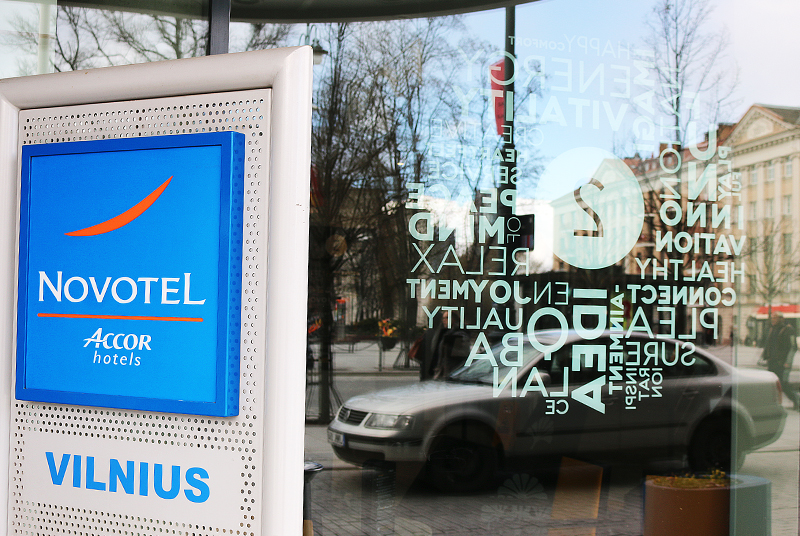As part of its overall efforts to reduce plastic waste, Group Accor is the latest lodging company to have announced a series of initiatives in which the miniature bottles and tubes provided in bathrooms across almost 5,000 hotel and resort properties worldwide will be replaced with what it calls “amenities dispensers” — along with eventually virtually eliminating single-use bottles of drinking water — with completion of these initiatives expected by no later than the end of the year 2022.
Accor to Eliminate Single Use Plastics Worldwide in All Hotels By 2022
This announcement — which was released from Group Accor yesterday, Wednesday, January 22, 2020 — follows similar announcements from rival lodging companies Marriott International, Incorporated from Wednesday, August 28, 2019; InterContinental Hotels Group from Tuesday, July 30, 2019; and Hyatt Hotels Corporation from Tuesday, November 12, 2019.
According to this official document from Group Accor, the following initiatives are only some which will be introduced as soon as possible in hotel and resort properties around the world:
- Transitioning to large-format bathroom amenities to replace traditional small bottles of shower gel, shampoo, conditioner and lotion.
- Single-use plastic water bottles replaced by reusable or glass bottles — with filtered or tap water.
- Plastic cup wrapped in plastic replaced by a reusable glass, or by a cardboard cup — with a label pertaining to non deforestation — and with an interior coating without plastic film for non hot-beverage; and the plastic packaging will be removed.
- Plastic packaging and plastic products replaced by sustainable materials for such items as cotton buds, dental kit, sewing kit, shaving kit, comb, hair brush, shower cap, and even the plastic packaging for slippers
- Plastic key cards replaced by sustainable material — wood with label, pulper…
Replacement of Single Use Water Bottles
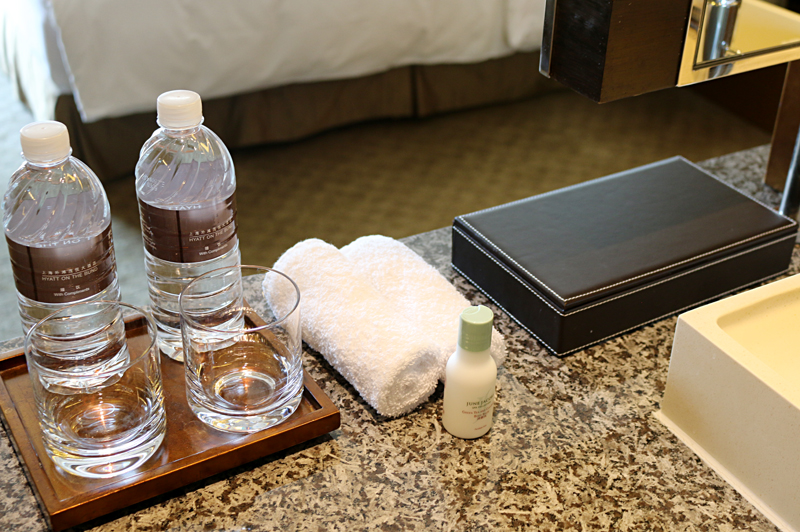
Transitioning to large-format bathroom amenities and reducing single-use water bottles builds on the broader commitment of Hyatt Hotels Corporation to reduce disposable packaging and select environmentally preferable options whenever possible.
Proper hydration is essential to living well. Offering increased access to water stations across Accor hotel and resort properties around the world will ensure guests will have hydration choices which align with both their well-being and sustainability priorities while traveling.
While these global efforts ensure that both leisure guests and business guests will consistently have the option to avoid single-use water bottles while staying at Accor hotel and resort properties, many hotel and resort properties have already been introducing additional efforts to create solutions which are considered to be the best in class — including but not limited to reusable bottles or returnable bottles with filtered water or tap water.
Single Use Plastic Toiletry Bottles at Hotels to Become Illegal in California — and Possibly New York?
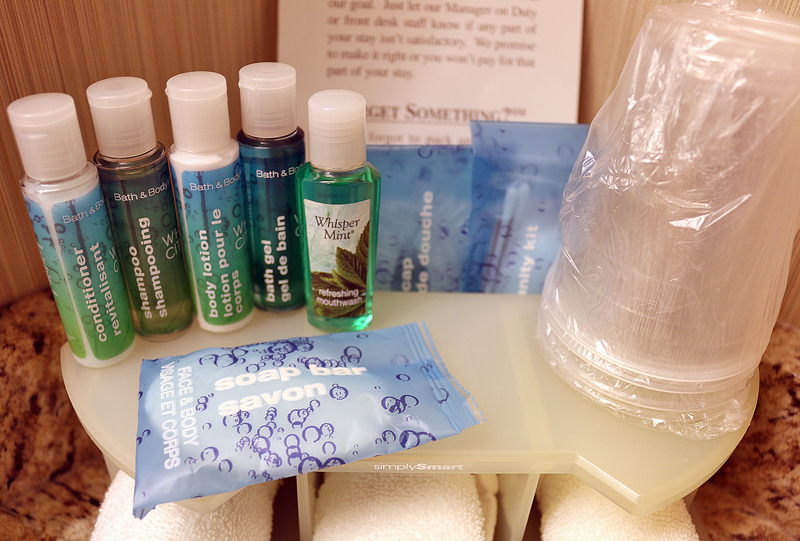
Personal care products in the form of miniature plastic toiletry bottles — which contain fewer than 12 ounces of liquid product — will be banned from lodging establishments in California effective as of Sunday, January 1, 2023, according to this article which I wrote here at The Gate back on Thursday, October 11, 2019.
Members of the State Assembly of California voted 50-24 on Wednesday, May 29, 2019 to pass the bill into law, according to this article which I wrote here at The Gate back on Thursday, June 6, 2019. Gavin Newsom — who is the current governor of California — essentially removed the last hurdle of the bill when he signed it into law.
The law — which is an amendment to the California Integrated Waste Management Act of 1989, as administered by the Department of Resources Recycling and Recovery — will require a state agency or “local agency with authority to inspect sleeping accommodations in a lodging establishment to notify lodging establishments of this requirement no less than one year before the requirement would become operative.”
Lodging establishments which are found in violation of the law by an authorized state or local authority would be issued a written warning upon a first violation; and a citation of $500.00 for a second or subsequent violation — not to exceed $2,000.00 annually.
If lawmakers in New York have their way, personal care products in the form of miniature plastic toiletry bottles — which are also defined as “single-use plastics — would similarly be banned from lodging establishments throughout the entire state.
Other Plastic Reduction Initiatives From Accor
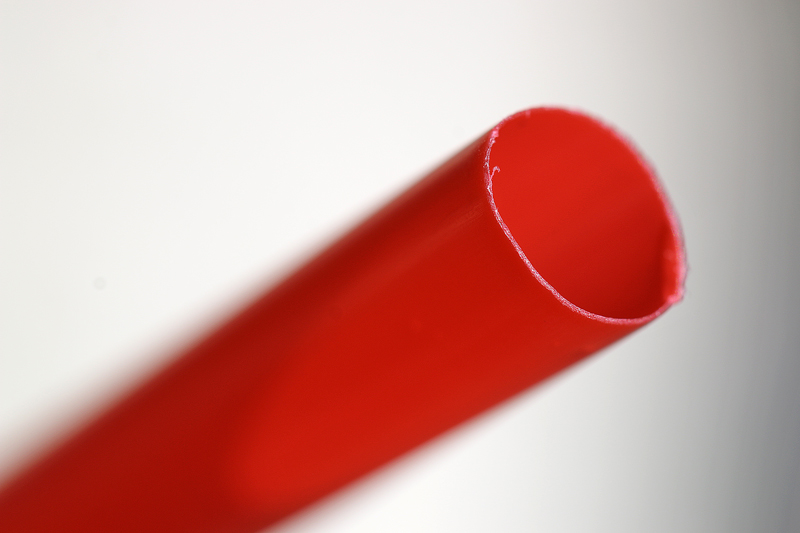
These new initiatives represent a significant step in the global sustainability program of Group Accor — as well as underscores the commitment of the lodging company to well being.
Other recent global initiatives have included removing plastic straws and drink picks and having alternative options — such as reusable straws in metal or bamboo; paper straws with a label; or
compostable straws — by the end of 2019, and increasing the use of content packaging for take-out or to-go food containers which can be composted or recycled.
Is Plastic Waste Really an Issue?
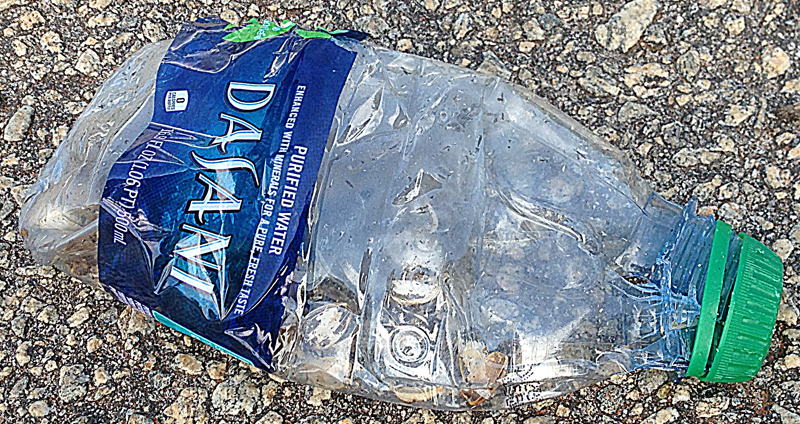
A recent study by the University of Newcastle, Australia suggests that an average person could be ingesting approximately five grams of plastic every week — which is the equivalent of a credit card’s worth of micro plastics — according to this article which I wrote here at The Gate back on Tuesday, June 18, 2019…
…but in response to that article, WR2 — who is a reader of The Gate — posted this rebuttal:
Sorry, but there’s so much misinformation in this post. First off, there are no “garbage patches” in the oceans. I assume you are referring to the “garbage island” meme, which is a complete lie. If you go there you will see nothing. There is an increase in the ppm in that area of the ocean, but most of the particles are tiny.
Second, relying on one “study” is dubious at best, so I would bet my life that the real number of amount of plastic ingested is much lower. However, it doesn’t really matter, because it’s pretty much harmless. It passes right through your system. It is a non-problem. That should be obvious given how much plastic we supposedly consume and yet we are doing just fine thank you.
Finally, the majority of plastic entering the oceans comes from Asia. Specifically, China, Thailand and Vietnam. If you go to Thailand you will see this firsthand. We are not the problem. We don’t dump our garbage into the ocean. So what we do here makes zero difference.
Is WR2 correct about the infamous “great garbage patch” in the Pacific Ocean being merely a myth? Could a “little skepticism would go a long way towards wasting money, emotional energy and political capital towards fighting non problems, and instead addressing real world problems” as WR2 claims?

The aforementioned official document from Accor claims that:
- 8,300 million tons of plastic have been produced in the world since the the 1950s, of which 79 percent have been discarded in landfills or nature.
- One million bottles are currently used every minute: only seven percent are recycled — and a bottle takes 450 years to biodegrade.
- Invisible micro-plastic from textiles and cosmetics represents 20 percent of the plastic pollution.
Recycling Should Be the Answer
Take a look underneath that miniature plastic toiletry bottles when you are in the bathroom of your room at a hotel or resort property…
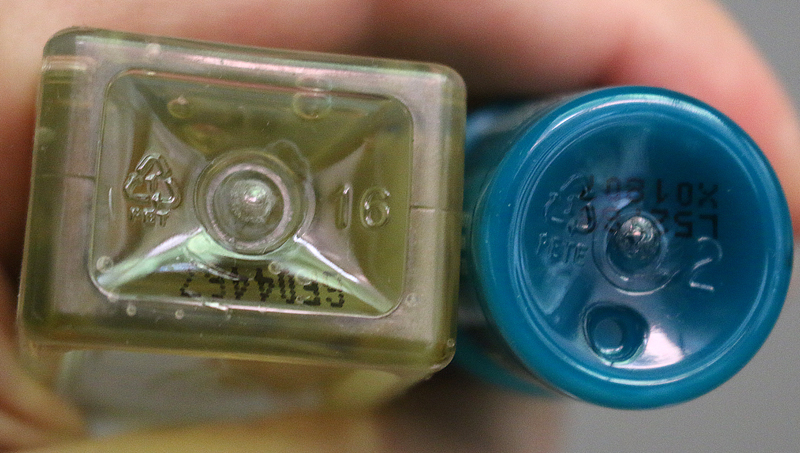
…and you will likely see that familiar triangular arrows symbol of the Resin Identification Coding System, which is a standard as specified by the American Society for Testing and Materials pertaining to recycling. For both of the bottles shown in the above photograph, the resin code is for polyethylene terephthalate, which is nicknamed by the more familiar acronym known as PETE.
All miniature plastic toiletry bottles for personal care products — such as shampoo, conditioner, body lotion and mouthwash as four examples — should be required to be manufactured by one recyclable material which had already been recycled. Perhaps that material can be based from a plant to be even more friendly to the environment.

Lodging establishments should then be required to provide a receptacle in guest rooms especially for recyclable materials. Once the guest is finished using the product, he or she then properly disposes of that bottle into the appropriate receptacle.
Many hotel and resort properties around the world already have a similar system in place — such as the Delta Hotels Banff Royal Canadian Lodge, at which I stayed.
Solid!

Some people who are concerned about the environment would suggest that most — if not all toiletries — should be in solid form instead of as liquids in order to eliminate the need for small plastic bottles. For example, soap is still supplied in the form of solid bars at many lodging establishments instead of body wash in miniature plastic bottles; and they usually are packaged in cardboard boxes, which are easy to recycle.
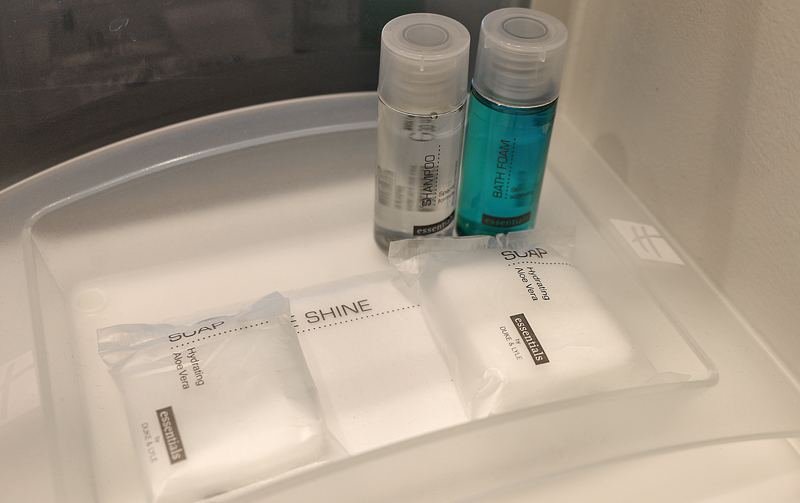
One problem is solid products which come wrapped in plastic, which usually cannot be recycled — but plastic wrap arguably better protects the product which is contained in it. If possible, a happy compromise would be to seal solid toiletries in a material that gives as much protection to the product as plastic, but can be easily recycled like cardboard.
Not everyone likes them, but certain shampoos and other products which are usually liquid in nature come in powdered form. Package them similarly in a recyclable material could also be another solution.
Are Bulk Dispensers The Answer?
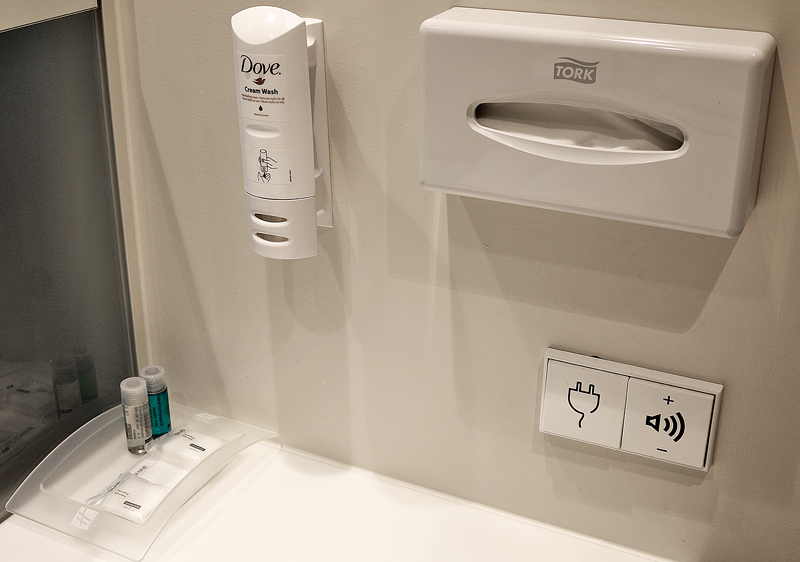
You may check into your room and notice that the familiar miniature plastic toiletry bottles are missing. Rather, bulk dispensers are installed on the walls in the bathroom.
Because there is only so much room on the walls of the bathroom — as well as for aesthetic reasons — instead of separate products for the shampoo and conditioner or for shampoo, liquid soap and body wash, they are combined as one product in a single dispenser.
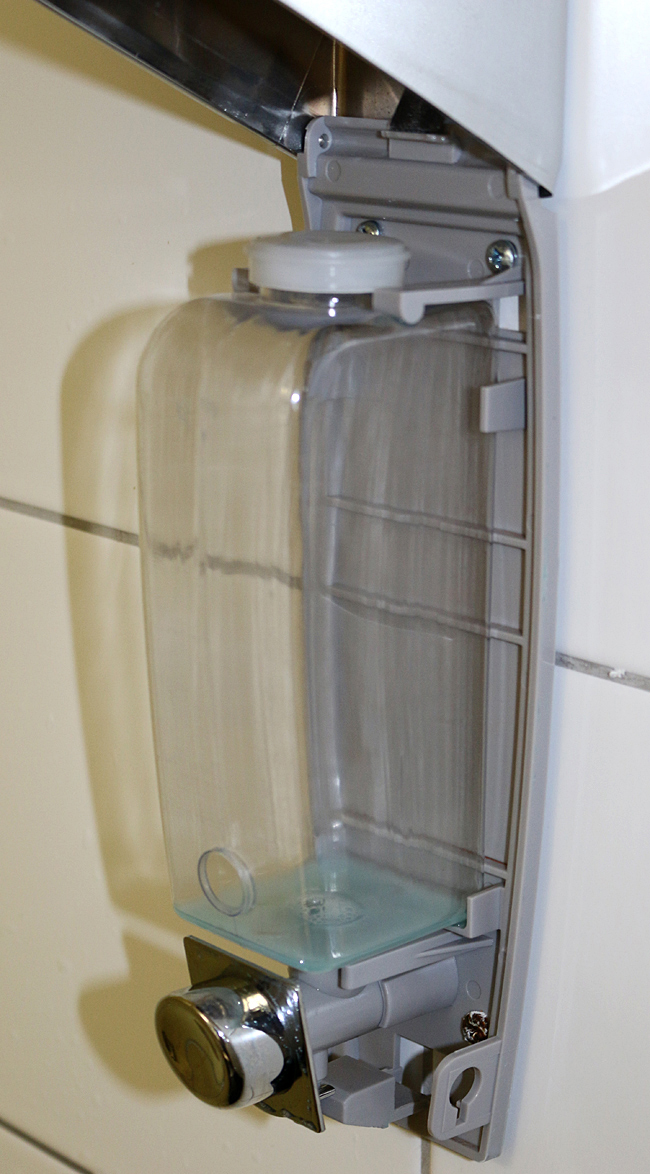
Another issue is that bulk dispensers are not always replenished — especially if the dispenser is manufactured out of a translucent or opaque material with no clear indicator. This has happened to me more than once over the years whenever I attempted to take a shower. For example, once was at the Park Inn by Radisson Budapest hotel property, at which the dispenser mounted on the wall was clearly empty — unlike the other time at a Holiday Inn hotel property in Munich, at which a dispenser mounted on the wall was empty; but one could not determine whether it was full or empty due to the fact that it was opaque with no indicator.
The last thing I want to do is call housekeeping and wait until a member of the staff is good and ready to provide the product which I need to clean myself. I do not want to have to check if a wall dispenser has enough product whenever I want or need to use it.
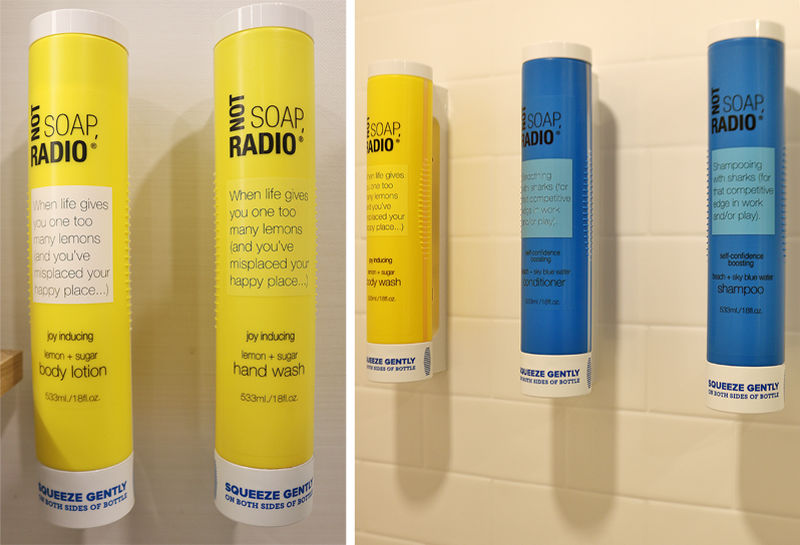
Some wall dispensers are not easy to use at all — such as those at the Tru by Hilton Oklahoma City Airport, at which I stayed. Among other issues, I did not like how the product came out of the containers, as you have to squeeze both sides of the container itself for it to come out. Squeeze gently as instructed, and nothing happens; but too much came out when squeezing slightly less gently. Despite multiple attempts, I could not find a happy medium. The container is poorly designed overall.
Other potential issues with bulk dispensers include — but are not limited to — the following, as bulk dispensers:
- May be empty when you attempt to use them, as they may not be refilled properly and in a timely manner
- Can eventually malfunction — such as product not dispensing when pushing a button as one of many examples
- May be more difficult to use due to inefficient or dysfunctional design — such as having to squeeze them hard simply to release product
- May be more likely to contain counterfeit products as a way for hotel and resort properties to save money
- Could potentially be breeding grounds for germs if they are not cleaned properly, as multiple people must touch them to use or refill them
- May be filled with undesirable foreign ingredients by other guests — even where locks are in place but the wall dispensers are left unlocked anyway
Advantage: Bulk Dispensers Versus Small Bottles and Tubes
The advantages of bulk dispensers versus small bottles and tubes of toiletries and amenities include:
- Less liquid product is wasted — guests can use as much or as little as desired
- Reduced amount of trash in terms of the number of used plastic bottles, tubes and boxes which are disposed
- Significantly more economical for each hotel and resort property as a measure of saving money — including fewer purchases and recycling small bottles can potentially be costly
- Less time for housekeeping to prepare the room
- Small bottles and tubes already used by other people may not be replaced with fresh product; whereas the product inside of bulk dispensers can be considered untouched by other people
- More counter and sink space for guests
- Bulk dispensers contain more product for guests with long hair; while small bottles and tubes may not contain enough product
Advantage: Small Bottles and Tubes Versus Bulk Dispensers
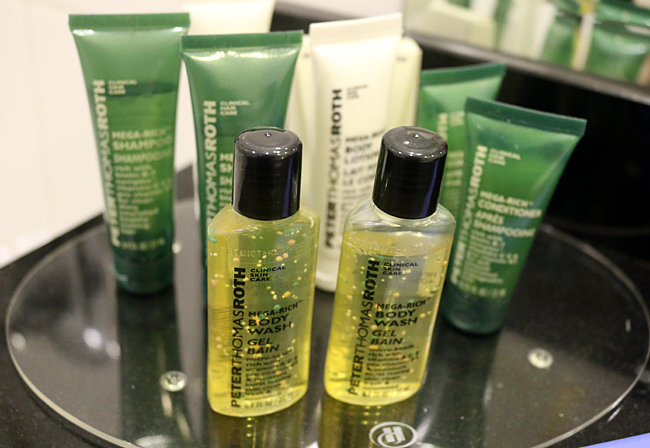
The advantages of small bottles and tubes of toiletries and amenities versus bulk dispensers include:
- Wall dispenser could be rendered useless if it falls off of the wall; is broken; or is simply not functional due to lack of proper maintenance
- Dispensing product can be more difficult than necessary — such as pumping numerous times just to use enough product
- Housekeeping staff must be called if bulk dispenser was never refilled
- Guests can potentially tamper with wall dispensers, depending on their designs
- Potential contamination of germs with the number of people who use wall dispensers if they are not cleaned or disinfected properly
- Guests can take small bottles or tubes of unused products with them, as they are convenient for traveling
- Greater than ten million people benefited from the Clean the World Foundation, which integrates used soap — which would otherwise be discarded — and integrates it with a comprehensive water, sanitation and hygiene program
- As with other environmental measures, bulk dispensers are touted to guests as environmentally friendly when really the main focus may be to save the hotel or resort property money
Just Another Way to Reduce Costs For the Good of the Environment?
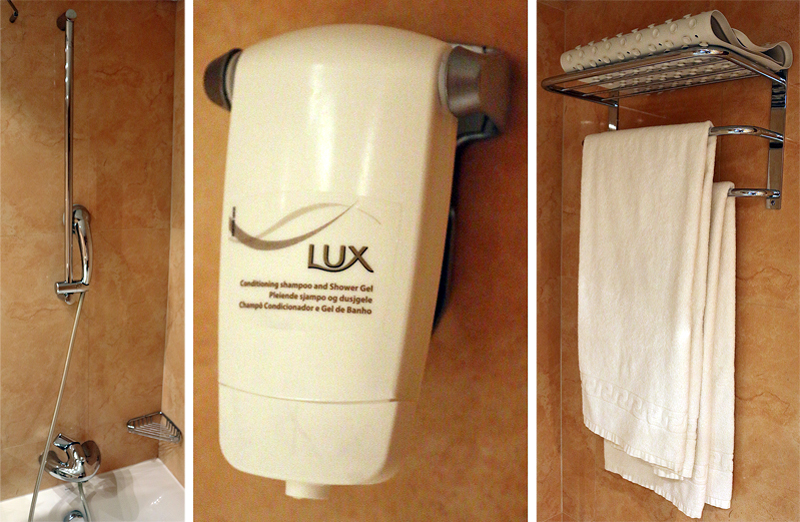
Marriott International, Incorporated already started switching to larger bottles situated in racks mounted on the walls of rooms in 450 hotel and resort properties at five different brands; and intended to expand to 1,500 hotel and resort properties in North America by January of 2019 — while InterContinental Hotels Group introduced bulk dispensers mounted on walls in the rooms of hotel and resort properties at four different brands last year.
As I first noted in this article which I wrote on Sunday, May 6, 2018 with regard to the initiative to save plastic as part of the Serve 360: Doing Good in Every Direction of Marriott to refresh sustainability and social impact efforts by 2025, “Environmentally, the program is expected to save an average of 250 lbs. of plastic per year for a 140-room hotel — approximately 23,000 plastic bottles”, according to this article written by Robin McLaughlin of Lodging Magazine. “Replacing small plastic bottles with the dispenser also positively impacts owners’ bottom lines, saving between $1,000 to $2,000 per year.”
Are these lodging companies truly concerned about the environment — or are they using these initiatives simply to improve their financial bottom line? Perhaps the answer is both are true — and if so, is that wrong?
Summary — and My Thoughts
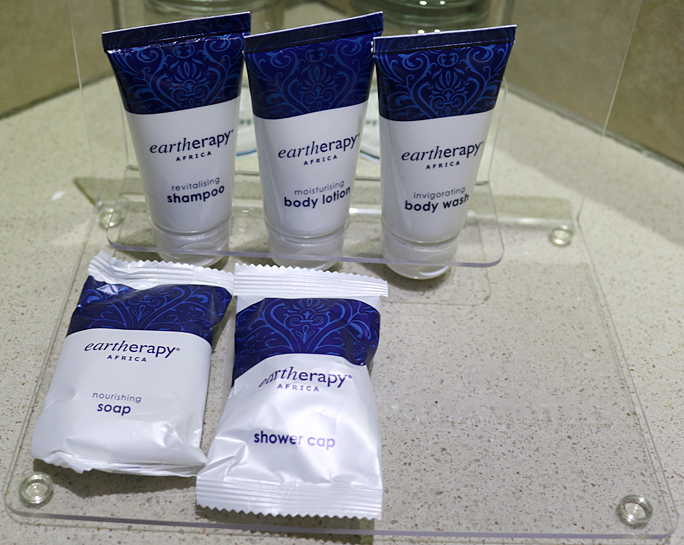
Although no definitive evidence is obvious, I keep thinking that this seemingly overzealous initiative by lodging companies is more about saving money than it is about being passionate pertaining to sustainability, as there are ways to continue to offer guests the miniature packages of amenities without impacting the environment in a negative way.
Most of the bulk dispensers I have found in the bathrooms at hotel properties are manufactured from a material known as — you guessed it — plastic. My personal experience with plastics suggests to me that although plastic may take many decades to break down biologically, its useful life is significantly shorter. What do you think management at a hotel or resort property will do once a bulk dispenser malfunctions and is no longer functional?
I am a believer in a number of issues: reducing the amount of intervention by governments whenever possible without reducing the efficacy of protecting consumers; ensuring that we conserve the consumption of products so that there is enough to go around for everyone; and protecting the environment as much as reasonably possible…
…but although bulk dispensers attached to walls in the bathrooms of lodging establishments could work in some cases, I am opposed to that being the norm for the aforementioned reasons described in this article.
Bulk containers of amenities in the bathrooms of the guest rooms in which I stay is not a change which I am looking for lodging companies to implement. I prefer the miniature individual containers for a variety of reasons — and I believe that is possible to do without harming the environment.
Once implemented, some people will choose to ignore the recycling options which I have proposed in this article; and that is to be expected. All I know is that I recycle whenever possible; and if lodging establishments put forth an effort to help recycling be as easy as throwing something in a trash can, then the majority of guests should theoretically use them with no problem.
As for toiletries in solid form: if a guest uses the product and likes it enough to keep it, that person can easily transport it home aboard an airplane, as it would not be subject to the limitations of liquids imposed at airport security checkpoints. Protecting them in a recyclable product which is both sealed and resistant to water would be a winning solution.
As I reported in this article on Earth Day, Sunday, April 22, 2018, thousands of bars of used soap — as well as small plastic bottles of toiletries such as shampoo, conditioner, body lotion, mouthwash and skin cream — can be discarded from one single hotel property daily; and wall dispensers could help to significantly reduce that waste. I also like the idea of helping people to whom cleanliness is considered a luxury, which is where the aforementioned Clean the World Foundation comes in.
Regardless of whether a hotel property uses bulk dispensers or small bottles and tubes of amenities is not going to significantly affect my trip either way. All I care about when I am a guest in a hotel room is that I am clean, comfortable, relaxed and refreshed while I am traveling.
My preference is to have the choice of whether or not I want the small containers of toiletries — as long as those containers are constructed of recyclable materials so that I may dispose of them properly when I am finished with them — but I am likely in the minority regarding that opinion.
Other articles pertaining to plastic waste and recycling include:
- Hyatt Hotels Corporation to Replace Smaller Plastic Amenities Packages and Water Bottles Worldwide
- Ban of Single Use Plastic Toiletry Bottles at Hotels to Become Law in California
- Bulk Amenities to Replace Bathroom Miniature Packages Across All Brands of Marriott International, Incorporated
- Bulk Amenities to Replace Bathroom Miniature Packages Across All Brands of InterContinental Hotels Group
- Miniature Toiletry Bottles in Hotels: What Really Should Be Done
- Wall Mounted Dispensers Versus Small Bottles of Amenities in Hotels
- Sale of Single Use Disposable Plastic Water Bottles Banned by San Francisco International Airport
- We Ingest Enough Plastic to Eat One Credit Card Per Week
- Single Use Plastic Toiletry Bottles at Hotels to Become Illegal in New York?
- Single Use Plastic Toiletry Bottles at Hotels to Become Illegal in California?
- Stupid Tip of the Day: Use Recycling Bins Whenever Possible
- Earth Day 2019: Clean the World by Recycling Used Soap and Plastic Bottles
- Earth Day 2018: Clean the World by Recycling Used Soap and Plastic Bottles
- Earth Day 2017 — and What Hilton is Doing to Help Save the Environment
- …and the Overpackaging of Hotel Amenities Award Goes To…
All photographs ©2014, ©2015, ©2017, ©2018 and ©2019 by Brian Cohen.
